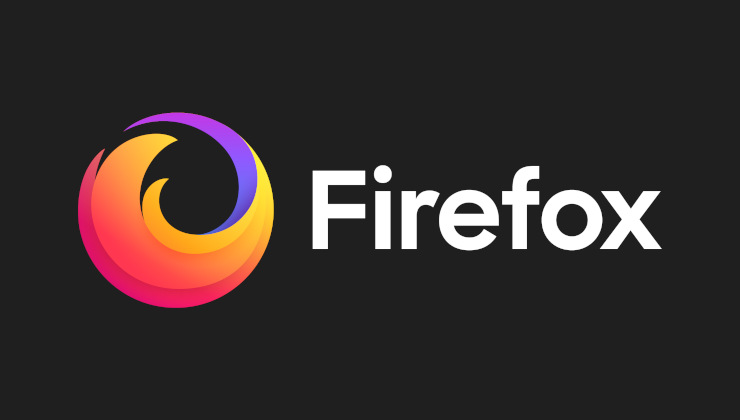Now that Valve has actually revealed the Steam Deck, we finally know what all their recent Linux work has been for over the last few years. We have some thoughts to share on it both positive and negative.
It's probably the most exciting thing to happen for Linux gaming in a very long time, in fact, probably the most interesting since Valve originally announced Steam Play Proton back in August of 2018. With SteamOS 3 being based upon Arch Linux, along with KDE Plasma for the desktop mode, it's a fantastic sounding device overall.
This time around, they've got their marketing right. Steam Machines were a failure, a pretty abysmal one (let's be honest). There wasn't really a market for a living-room Linux box, from different vendors that ended up confusing. We're now seeing one model, with different storage options (and a better screen on the top-end), that's pretty much perfect and exactly what was needed. One device type to test against. Not only that, the handheld market is actually a very exciting one to be moving into!
Heck, even Tim Sweeney of Epic Games appears to love the idea:
Amazing move by Valve! A handheld PC/console hybrid running the SteamOS fork of Arch Linux, and it’s an open platform where users are free to install software or their choosing - including Windows and other stores.
When it comes to Linux gaming, Valve are now going all-in with Steam Play Proton. So much so, that they're telling developers "No porting required.", because they want to get everything on Steam working with Proton. Is that surprising? No, not at all. A little concerning perhaps? Yes, for multiple reasons, a lot of the same reasons we've spoken about before. To sum it up quickly:
- It relies on Microsoft to set the standards (unless developers pick OpenGL/Vulkan which reduces it a bit), since Proton is based upon Wine which translates Windows calls to something Linux understands. Linux as an actual platform takes a seat way at the back, even further in the minds of developers from where it is now.
- If it fails and Valve pull back from Proton - Linux gamers are truly left out in the cold.
- It largely forces Linux gaming to be from a single vendor with Valve. If you're not concerned about that at all, you probably should be.
- There's still no guarantees that a game update won't break the Windows build in Proton. How long will we have to wait for a fix? Tens of thousands of games on Steam is a ridiculous thing from Valve to take on to ensure they work.
Quite a lot of games will need UI improvements for it too. Think about how many are cramped as it is, have no UI scaling, are terrible on a gamepad? A large number of developers out there will regardless need to put in some effort for the Steam Deck to make it a good experience for gamers.
However, that's just focusing on the negatives. The potential positives likely far outweigh the possible negatives there. We've long said "hardware, hardware, hardware" as the key to Linux and Linux Gaming having a future - and so Valve has pretty much said "hold my beer" on that and hopefully it will deliver. To give some positives to the negatives above:
- Could it be that Proton truly ends up being something developers directly target for supporting Linux? It gives a mostly stable base, with well-known APIs already used on Windows. It might also be an incentive for developers working all across Linux to get some more standards in place overall.
- It all fails? The work is already done for Proton (and Wine that it's based upon), that won't just go away. Valve can just keep the Steam Play system in place and it already supports external Steam Play tools. It's all open source, it can't just vanish and that's a big mark in Valve's favour on what they're doing.
- Other vendors? What other vendors? GOG still haven't bothered with Galaxy on Linux, Epic Games don't seem to care about their store on Linux, Humble Store sells Steam keys so they're in a good position. Honestly, if you end up buying a Steam Deck, why would you need look at any other store again? You then get a copy you can play on the Linux desktop, the Steam Deck and yes Windows too. We might end up seeing less exclusives on other stores, another win for Steam and so Linux and the Steam Deck too.
- Actually having a device out there that might be popular (we reckon it will be!) with plenty of users finally gives developers a real incentive to actually test on Linux, and not roll out updates if it breaks for Linux with Proton (same goes for native Linux games).
A positive for me personally: I work sat at a desk pretty much all day. Do I want to sit here as well during all of my evenings? Heck no. I've wanted a device like this supported by a bigger company for a long time now. Being able to sit back and relax with a Steam Deck, in a room that's not boiling hot and also when travelling? I've never been sold this fast on something before.
Considering it's not exactly a beast (still quite powerful though), developers will need to look at optimizing their games. This is a net benefit for everyone. We've seen multiple times in the past that a console release has seen an update for the same game on Steam, to bring over some optimizations. Hopefully we will see a similar thing too, so that not only the Steam Deck will see good performance but that gain could be seen elsewhere on desktop Linux and other platforms too perhaps.

Direct Link
The desktop mode too, briefly seen in the above video is awesome. Giving you the ability to carry around not just a portable gaming unit, that will actually run modern games but have a full Linux environment to hook up wherever you want too. An incredibly exciting idea to really show off the device to other people. KDE Plasma has come a very long way in even just the last two years too, and it looks really good.
Gamepad support. We might finally see it become a truly serious thing in developers minds thanks to this. You cannot be expected to, or for developers to assume, that you're going to hook up anything else to it. We'll likely see a lot more games announce full gamepad support. Another big win for all Steam gamers.
Anti-cheat, the big missing puzzle piece for Linux with Windows games run through Proton, it's finally moving in the right direction too. In our original wishlist for what was code-named the Steampal, we mentioned how online gaming was a sore spot due to the likes of Easy Anti-Cheat and BattlEye not working but Valve do say "We’re working with BattlEye and EAC to get support for Proton ahead of launch." and so we might finally be able to play the likes of Apex Legends, PUBG and more on a Linux desktop and the Steam Deck. A huge win for everyone to be sure.
Going by what Valve has said, they have plenty of work for Proton that is not yet public which we should hopefully see before the Steam Deck releases, that way they can ensure plenty of desktop Linux testing which would put them in a good position for launch.
Let's talk about the pricing too. As a reminder the Steam Deck devices come across three editions at £349 ($399), £459 ($529) and £569 ($649). Each version has more and faster storage than the previous, with the top-end having the anti-glare screen too. The higher model also gives you a special carry case and other little niceties. Considering the type of device it is, it's a shame the anti-glare is only on the most expensive version. Hopefully it won't be long before we see Valve or others create an anti-glare cover specially for it. Compared with the pricing on the Nintendo Switch (£279.99 original, £309.99 OLED model), it's quite aggressive given the higher specifications and masses more games.
The pricing should put the Steam Deck in a good position, and Valve CEO Gabe Newell even said to IGN that the price-point was "painful" and they're hoping to sell "millions" of units. Valve also aren't thinking about it in terms of having to shift multiple games per-device, they're more focused long-term on if it's the right product and mentioned about opening up this new category for other vendors to make devices.
Emulation is something to think about too. While obviously Valve are focusing on the bigger fish, this is going to end up being a hugely fun device for retro gaming too. You even have RetroArch on Steam (in Beta currently), which will have a bunch of different emulators ready for you and RetroArch supports Linux with a native build too. That can't be underestimated as helping shift a good few units.
Game streaming? Yeah, it will enable more of that too. Since it has the full desktop mode, loading up the likes of Stadia, GeForce NOW and Xbox Cloud Gaming should be just a few clicks away.
How about some game development? Well, there's game engines available directly on Steam like Godot Engine which offers a native Linux build of the editor and exported games support Linux natively too. Compile times might be an issue, but the point is the possibilities of the Steam Deck just keep on giving.
Thinking back to the original SteamOS and Steam Machines, there was a problem with the Steam Hardware Survey. SteamOS using Big Picture Mode didn't ever show the opt-in survey box, so it was seemingly never counted. Valve obviously know all the details but we could never see. How will they show it this time? Hopefully it won't be missed. Interestingly, since it's a PC and you can install whatever you want on it (even a different operating system), will they show it like VR devices and count who has used one recently, or will it actually show SteamOS 3 in the main operating system list? That will be interesting to see.
We're also very curious to see if Valve will actually show some kind of "optimized for Steam Deck" label. They've said they want pretty much everything to work on it, either through Linux native titles or Proton but how will users know what to buy without going to external and unofficial websites that often have dubious user reports? We think they're going to need something to show it at least officially. This has yet to be mentioned by Valve.
No matter what happens with it, Valve has possibly truly opened up a whole new market.
What about for us, GamingOnLinux? Naturally, we're going to be grabbing a device to test and report on specifically for the Linux audience. We're hoping to continue being at the front of it all. We're hoping to do regular games testing across the Steam Deck and desktop Linux together, in addition to everything else we cover.
You can pre-order it from today around 6PM BST / 5PM UTC / 10AM PDT from the Steam Store. There's a fee to place your reservation at $5/£4, which applies only to the specific model you pick - you can't change it unless you cancel and re-do it. That fee is used against the price of the unit, or refunded if you don't actually order one. Valve are also fully aware of scalpers, so they've made sure you can only pre-order if your Steam account has made a purchase before June 2021 for the first 48 hours and you can only order one. Your invitation to then properly order will be hopefully some time before the end of December 2021.
To repeat what we said in our coverage of the Steam Deck announcement: is this the holy grail of Linux gaming? Could be.
Will you be buying one?
Quoting: LamdarerOr they more or less expect the Windows flock to install Win 10/11 right away.Quoting: subI still don't see how they'll manage to get the whole Steam Windows catalog (or even close) working fine with Proton until Dec.I think either the PR Team of Valve was either a bit over confident or they are working on something promising in the background, maybe we will see BattleEye/Easy Anti-Cheat working on Linux for non proton games this year.
As good and impressive that tech is and has come -v ery often I'm facing issues when trying a Windows through SteamPlay. No matter if I choose experimental or stable. Will they whitelist games that are known to work? But that's not what they promise ...
Btw, I don't run an exotic configuration. It's a Ryzen+5700XT and alway up-to-date Arch installation.
Quoting: subI dont think so.Quoting: LamdarerOr they more or less expect the Windows flock to install Win 10/11 right away.Quoting: subI still don't see how they'll manage to get the whole Steam Windows catalog (or even close) working fine with Proton until Dec.I think either the PR Team of Valve was either a bit over confident or they are working on something promising in the background, maybe we will see BattleEye/Easy Anti-Cheat working on Linux for non proton games this year.
As good and impressive that tech is and has come -v ery often I'm facing issues when trying a Windows through SteamPlay. No matter if I choose experimental or stable. Will they whitelist games that are known to work? But that's not what they promise ...
Btw, I don't run an exotic configuration. It's a Ryzen+5700XT and alway up-to-date Arch installation.
Quoting: EikeI think Valve could easily swy people here. I would agree with you if valve's message was "yes you can install windows but it's not supported" which casts doubts in people. But they actually say "can you install windows? Big resounding yes, [no worries, will definitely work]" which makes people confident they could do it.Quoting: dubigrasuI'm pretty sure many will do that, basically almost all the Steam Machines (old and new) were stripped of SteamOS and went full Windows, the same with many Atari machines.Hm. While I'd be confident to change OS on a Steam Machine - a PC box -, I'd be less confident to do so on a specialized integrated system like the Steam Deck.
The poor game selection was definitely a factor for that, and hopefully it will be not the case for Steam Deck, but many gamers are enthusiast tinkerers and installing a familiar and proven OS is the least of their worries.
Quoting: GuestWin 11 on Steam deck 64BG version...I mean there must be an option to attach some (yeah, rather slow) USB3 stick/HDD to it with a Steam collection anyhow.
No, no possible (ok its possible but no free space for any game left)
64 Gb won't get you far even with a slim Linux distro.
Quoting: slaapliedjeOne question I have: Are they going to have a mirror of Arch that they add packages in selectively and test? Because Arch Linux, as stable as it is, still has the occasional breakage, and you end up having to go to their site and read how to fix said breakage.They already have a "valveaur" repo. Maybe this, maybe a new one, but I'm pretty sure they'll have a dedicated repo for the Deck.
They used a dedicated repo for Debian, even though it was Debian stable, so much more so for Arch.
You can't afford to sell millions of devices to people and risk to have one messed update to screw them all.
Or maybe they'll push ready-only images for the system when necessary, having only the user folders writable, similar with ChimeraOS. They mentioned that few times.
Last edited by dubigrasu on 17 Jul 2021 at 5:31 pm UTC
Quoting: subYes. It is called SD Card.Quoting: GuestWin 11 on Steam deck 64BG version...I mean there must be an option to attach some (yeah, rather slow) USB3 stick/HDD to it with a Steam collection anyhow.
No, no possible (ok its possible but no free space for any game left)
64 Gb won't get you far even with a slim Linux distro.
Quoting: LoftyDo you really think they will have 100% stability on release without bugs on 5,000+ games including all new titles released from this point onwards? I don't (nor do i think they have to).Well they claim that this is what they aim for, I have zero expectations that they will reach 100% but I also don't think that they will have to reach 100% without bugs to not have the casual gamer throw the device away. Atleast not an a scale that matters.
Unless you mean the machine will have the same version of proton installed as the desktop client which given the nature of the hardware is such an obvious given i hadn't considered you were making that point.
And it's not an impossible goal, this is not magic and beyond the DRM-protections no game should reach into parts of Windows where WINE cannot easily replicate functionality. That WINE has not gone full 100% compatible for decades already is simply down to lack of resources (except the DRM cases, but here we have Valve claiming that they are working with the largest DRM vendors so...).
Console gaming regardless of it's Nintendo, Microsoft or Sony is not 100% bug-free either, I've experienced plenty of games that lock-up the entire console but still there is no huge movement among people to throw out their consoles.
Then of course people always treat Linux differently and to a higher standard for some reason so I'm not 100% sure of course. Microsoft can fuck people over without repercussions just like IBM of old.
Quoting: subWon't be playing Total War: Rome Remastered on that, that's for sure.Quoting: GuestWin 11 on Steam deck 64BG version...I mean there must be an option to attach some (yeah, rather slow) USB3 stick/HDD to it with a Steam collection anyhow.
No, no possible (ok its possible but no free space for any game left)
64 Gb won't get you far even with a slim Linux distro.
Last edited by lejimster on 17 Jul 2021 at 3:04 pm UTC
Last edited by Eike on 17 Jul 2021 at 2:42 pm UTC
Quoting: PublicNuisanceThe storage is soldered on and can't be replaced.https://www.steamdeck.com/en/tech
All models use socketed 2230 m.2 modules (not intended for end-user replacement)Pierre-Loup Griffais has said that the socket is particularly fiddly to get to.
All models include high-speed microSD card slot
Quoting: PublicNuisanceThe battery isn't listed as removable so I will assume that can't be replaced either.Batteries, as a blob that takes up most of the space in a mobile device that only need a single connection, are generally quite modular, and Valve haven't shown any inclination towards wanting to deliberately lock these down. Sony are quite control-freaky about their hardware, but I could still replace the batteries in my PS3 controllers.
Wait for the inevitable iFixit teardown.
Last edited by CatKiller on 17 Jul 2021 at 5:09 pm UTC
Quoting: MohandevirFor this part, I'm quite sure Valve is having something up it's sleeve that we haven't yet seen anywhere, just like AC support and their internal Proton build that seems to support more games than what is available, atm.I think the simplest and easiest thing to do is for valve to treatt it like another platform on Steam. Have a "Deck" icon for Linux+whitelisted+supported games.
Other wise I think you'll have disappointed people.
On a different note. I wonder how many reservations stream has gotten? Obviously it's not indicative of sales, but can at least show how much interest is there.
Last edited by denyasis on 17 Jul 2021 at 4:22 pm UTC
Quoting: denyasisI think the simplest and easiest thing to do is for valve to treatt it like another platform on Steam. Have a "Deck" icon for Linux+whitelisted+supported games.Hopefully it'll be the Linux (SteamOS) icon, otherwise I think they'll have disappointed me.
Other wise I think you'll have disappointed people.
Quoting: denyasisOn a different note. I wonder how many reservations stream has gotten? Obviously it's not indicative of sales, but can at least show how much interest is there.They had 110,000 reservations in the first 90 minutes before they plugged the information leak.
Quoting: F.UltraConsole gaming regardless of it's Nintendo, Microsoft or Sony is not 100% bug-free either, I've experienced plenty of games that lock-up the entire console but still there is no huge movement among people to throw out their consoles.This is something i have not experienced as i have been console free for longer than i can remember.
Then of course people always treat Linux differently and to a higher standard for some reason so I'm not 100% sure of course. Microsoft can fuck people over without repercussions just like IBM of old.Im not sure either TBH.
But the ability to installing anything else on it makes it very charming. Like replacing KDE. That has become just a giant memory hog from v4 on. And a bit unstable (at least in a 24/7 scenario).
Hopefully there will soon be additional repos (like packman for suse or epel for rhel/centos) available to get all the other goodies which make for a nice linux experience. I think then it will become a very cool mobile Linux experience, and a very compact one too compared to a notebook.
So, I reserved one. Will still be thinking about buying it (projected order time is Q1/2022 atm, so there's a little bit time left), but at least I'll have the chance doing that early.
P.S. I really hope this thing will become very popular. That would at least motivate developers to take care of how their stuff runs inside proton. And I think it will, because one good thing about steam is: you get a huge variety of games from a big amount of developers and they're lots cheaper than those exclusives in other (console) stores.
"We’re working with BattlEye and EAC to get support for Proton ahead of launch."
This is the ass-kicking feature I've been waiting for for so long with Proton ... oh god! Do dreams still come true? The launch is scheduled for the end of 2021. Valve could really put a fine Christmas present under the tree! :)













 How to setup OpenMW for modern Morrowind on Linux / SteamOS and Steam Deck
How to setup OpenMW for modern Morrowind on Linux / SteamOS and Steam Deck How to install Hollow Knight: Silksong mods on Linux, SteamOS and Steam Deck
How to install Hollow Knight: Silksong mods on Linux, SteamOS and Steam Deck